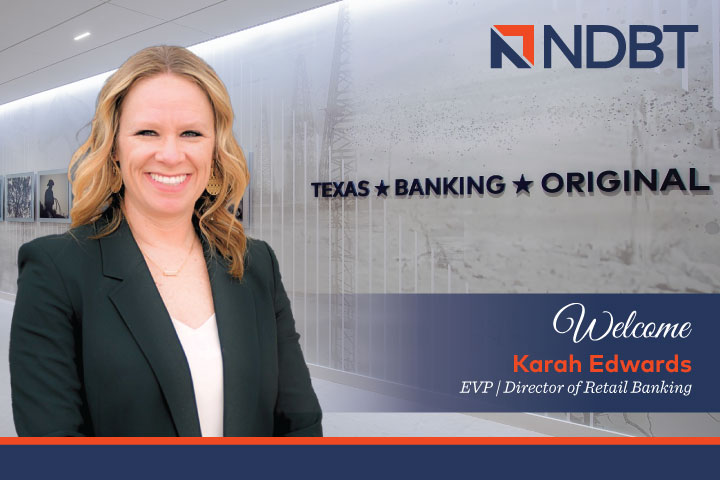It seems everyone is talking about the economy these days. During the recent holidays, I had family members ask me where I thought interest rates were headed in 2024. Earlier in 2023, it was all about inflation. Who knows what the hot topic will be this year.
In general, I try not to set firm expectations for my friends or clients on what is going to happen in the economy. Honestly, so much of it is out of anyone’s control. I’d probably be skeptical of anyone who tells me they know exactly what will happen in 2024. You never know when a pandemic is going to strike or how an election year may impact the economy.
However, there are still opportunities to make intelligent financial decisions – even in the midst of uncertainty. One of my favorites to discuss is whether a business owner should purchase or lease their space. Like most things, there’s no one-size-fits-all answer. Every business owner needs to make the decision that is appropriate for his or her situation. Here are some of the major pros and cons that I’d encourage my client to consider:
Build Equity through Value Appreciation
Anyone who’s owned a home here in North Texas over the last 15 years is familiar with this concept. I started working at NDBT in July 2016. At that time, it would have cost you $237,500 to purchase a typical home in DFW. July 2023, that same home would have cost you $409,085, an increase of 72%.
If you’re someone who already owns a home that’s good news. You’ve made more than $170,000 just by living in your home for 7 years!
If you’re not a homeowner, though, it can be discouraging. You may feel that, despite working hard and saving, you’re getting further away from owning a home.
Despite their many differences, owning a house and owning a commercial property have this characteristic in common. In general, you can expect that the value of your asset will increase over time. Real estate is a finite resource and, generally speaking, a good building in a desirable location will appreciate over time.
Manage Expense Inflation
Most of us have dealt with a frustrating lease renewal at some point. Maybe you had an inattentive landlord. Maybe your lease came up for renewal and your rent went up 50%. Maybe both. Sound familiar?
Business owners who control their building control their rent. Obviously, no property owner can fully control certain costs. Taxes, insurance, and maintenance, for example, are largely out of the property owner’s control. But the owner can decide how much of a margin they need to earn on rent. An added bonus – taxes and insurance tend to be correlated to property value. While these expenses go up, it is likely that the value of your property goes up, too.
If you’re the landlord for your business, you get to decide when to increase rent and by how much. And, while you’re financially responsible for maintenance, you can at least control when things get fixed.
Diversify Wealth
In my role as a commercial lender, I work closely with business owners in a wide variety of different industries. One of my key responsibilities is reviewing and understanding the finances of the business and the business owner. I often find that the owner’s net worth is tied up almost entirely in the value of the business.
It makes sense, right? You work for years establishing your business. In order to grow, you use your profits to scale the business and, of course, afford your personal life. There’s not always enough margin to invest in other things.
Purchasing a building allows business owners to diversify their investments while still supporting the business. If an owner decides to move the business to a new location someday, he or she can sell the building and apply those proceeds to another property, or an owner could opt to lease that building to a new tenant.
Either way, they own an asset that is separate of their business and have diversified their holdings.
Risks to Consider
While owning a commercial building can be very profitable, it’s not without risk. Any business owner considering making such a large investment should understand these potential pitfalls.
Purchasing a building requires a significant amount of cash at closing. Most banks will require a down payment of at least 20%, and you’ll also be responsible for closing costs. Business owners will need to ensure that they have enough liquidity to close on the purchase without jeopardizing the financial stability of themselves or the company.
Business owners should also work closely with a realtor to ensure that they understand the condition of the property they are purchasing. The older the building, the more likely you’ll need to spend significant resources updating and renovating the property.
If you’d like to consider purchasing a commercial building, I’d recommend building a good team to help. You’ll want to work with a good commercial real estate broker to help you find the right property that fits your needs. An accountant can help you develop a purchasing strategy that is financially sound and efficient. Your banker can help you understand loan options and how much they may cost.
Buying a commercial property is bound to be one of the biggest purchases you make in your life. It is important that you carefully measure the pros and cons for yourself. But if you ever feel like discussing the decision with someone, please don’t hesitate to contact your trusted banking professional. We may not be able to predict where the economy is headed in 2024, but we’ve helped many other small business owners work through this decision in a variety of economic conditions. We would be thrilled to share our experience with you.

Sam Gunn
SVP – Commercial Lender







